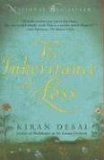Summary | Excerpt | Reading Guide | Reviews | Beyond the book | Read-Alikes | Genres & Themes | Author Bio

Beautifully written, emotionally and sensually arresting—"a Persian love poem for the twenty-first century" —this deeply felt and moving novel explores the heart of a family at the crossroads of culture, nationality, religion, and the most personal crises of faith.
Jugnu and
his lover, Chanda, have disappeared.
Though unmarried, they had been living together, embracing the
contemporary mores of the English town where they lived but disgracing
themselves in the eyes of their close-knit Pakistani community. Rumors
about their disappearance abound, but five months go by before anything
certain is known. Finally, on a snow-covered January morning, Chanda’s
brothers are arrested for the murder of their sister and Jugnu.
Shock and disbelief spread through the community, and for Jugnu’s
brother, Shamas, and his wife, Kaukab, it is a moment that marks the
beginning of the unraveling of all that is sacred to them. As the novel
unfolds over the next twelve months, we watch Kaukab struggle to
maintain her Islamic piety as the effects of the double murder prove
increasingly corrosive to the life of her family.
Upon its publication last year in England, Alan Hollinghurst praised
Maps for Lost Lovers as "haunting, vivid, and tender," and Colm
Tóibín hailed it as "a superb achievement, a book in which every detail
is nuanced, every piece of drama carefully choreographed, even minor
characters carefully drawn." Beautifully written, emotionally and
sensually arresting—"a Persian love poem for the twenty-first century"
(Books Quarterly)—this deeply felt and moving novel explores the
heart of a family at the crossroads of culture, nationality, religion,
and the most personal crises of faith. Maps for Lost Lovers
introduces American readers to a magnificent voice in fiction.
Although there are times when, to my prosaic Western ears, the imagery does seem to be a bit much, I find it difficult to glibly criticize the book for this alone, especially when I take into account the apparent time and effort that went into writing it (see sidebar). This is not something that would normally color my opinion, but in this case it's enough for me to ask myself, every time I feel that he's laying things on a bit thick, whether the metaphor is there gratuitously to puff out a paragraph or whether, perhaps, he had a specific reason for choosing it! As always, you can judge for yourself by reading a substantial excerpt at BookBrowse...continued
Full Review
 (446 words)
(446 words)
(Reviewed by BookBrowse Review Team).
Map For Lost Lovers explores many issues within the Muslim community, including the central theme of honor killings. According to Amnesty International, an average of 2 women are killed each day in Pakistan for 'betraying the honor of the family' (the reasons for this loss of honor could range from infidelity, including being the victim of rape, through to simply being a
bad cook). Last year, President Pervez Musharraf signed a bill making honor killings an explicit criminal act punishable by death. Prior to this it was possible to be acquitted in most cases under a "grave and sudden provocation" clause.
In 2002 UNICEF estimated that
5,000 women were being killed in India alone each year because their dowries
were considered ...

If you liked Maps For Lost Lovers, try these:

by Kiran Desai
Published 2006
In a crumbling, isolated house at the foot of Mount Kanchenjunga lives an embittered old judge who wants to retire in peace, then his orphaned granddaughter, Sai, arrives on his doorstep. When a Nepalese insurgency in the mountains causes their lives to descend into chaos, they too are forced to confront their colliding interests. Winner of the ...

by Leila Aboulela
Published 2005
A lyric and insightful novel about Islam and an alluring glimpse into a culture Westerners are only just beginning to understand.